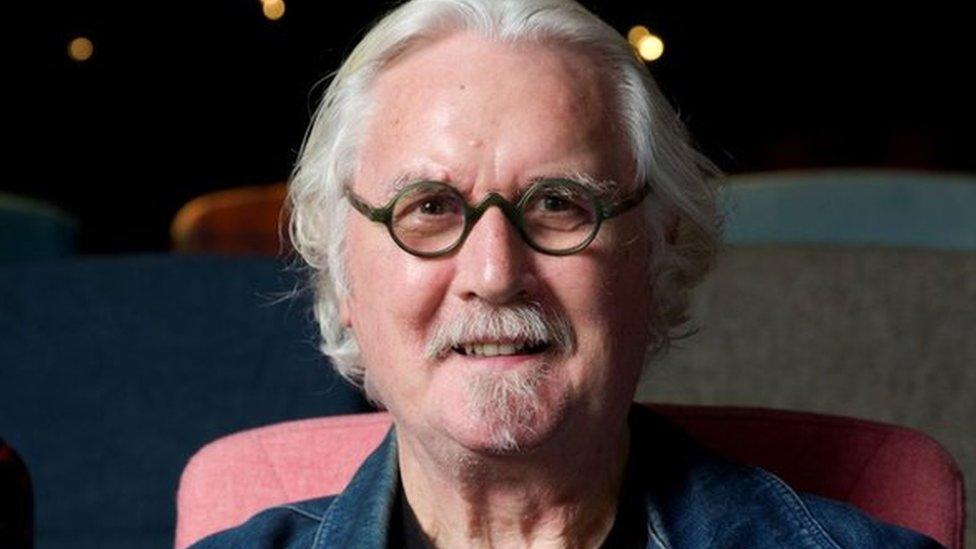Parkinson's: 'Lack of specialist care for Wales patients'
- Published
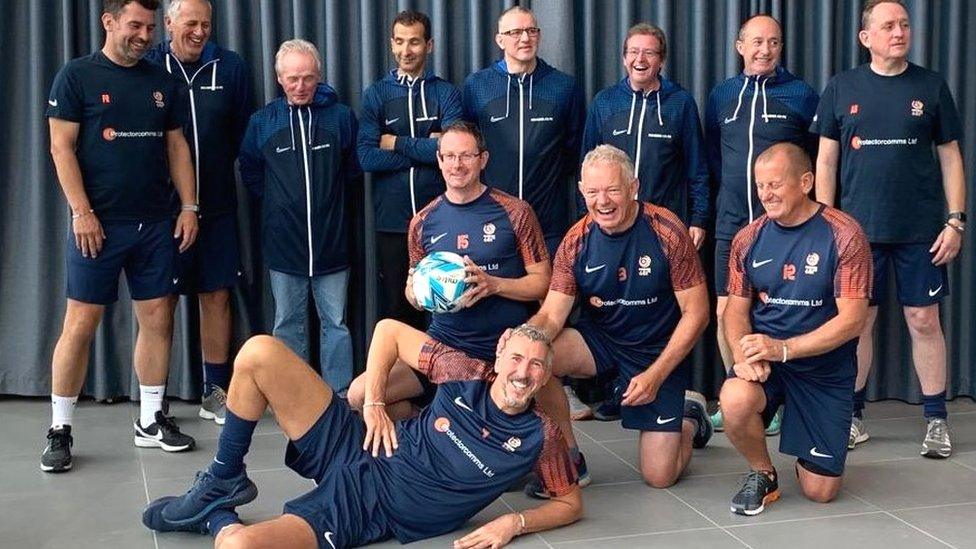
Antony (lying on floor) with his teammates from Phoenix 681 FC
A charity representing patients living with Parkinson's has criticised the lack of specialist care in Wales.
Parkinson's UK Cymru describes care for those living with the disease in Wales as a "postcode lottery".
Former rugby player Antony Evans, who was diagnosed aged 42, said medics did not consider Parkinson's because of his age.
The Welsh government said it has created a roadmap for health boards to meet demand for support services.
The charity said about 7,600 people in Wales are known to live with the disease in Wales, with 23 full-time specialist nurses to care for them.
It is a progressive condition affecting the part of the brain which creates a chemical called dopamine and impairs the body's ability to control movement. There is no known cure.
According to the World Health Organization (WHO) it is the fastest-growing neurological condition in the world, external.
'Karate Kid exercises'
According to Antony, now 49, there is a lack of knowledge and understanding about the condition even within the medical profession.
He received his diagnosis seven years ago, while undergoing an unrelated back operation.
"Physios missed it and other doctors missed it because of my age. That's something which seriously needs to become more prevalent in GPs - people under 40 can certainly get Parkinson's."
"I was given Karate Kid, 'wax on, wax off' exercises. I had very shiny windows, but it was all for nothing. They didn't consider Parkinson's because I was 42 years of age."
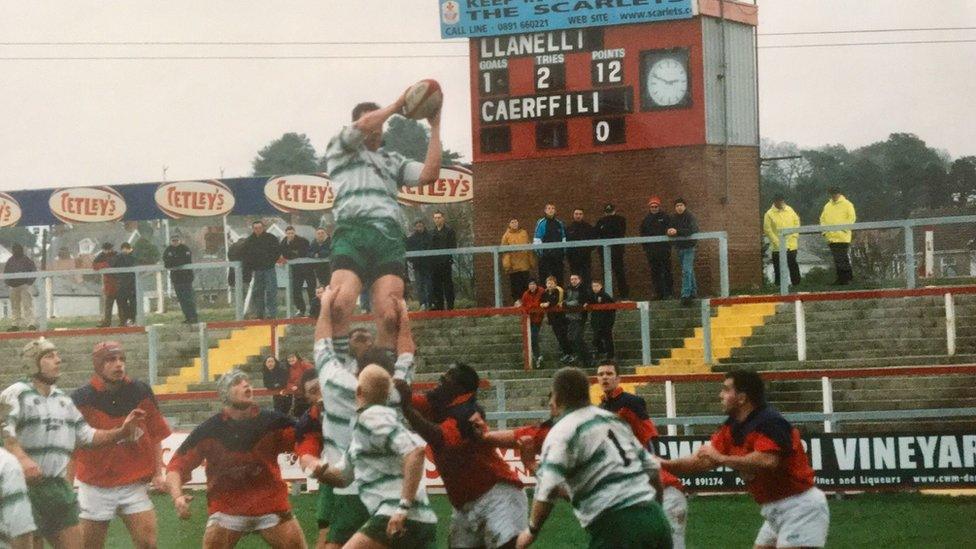
Antony, seen here grabbing the ball against Llanelli
In the late 90s and early 00s, Antony played second row for the Caerphilly rugby team which secured 10 successive promotions, from the local rugby doldrums to the Welsh Premier Division.
He was part of the team that secured a win on French soil (a Challenge Cup match away to Racing Club de France in 1998, which Caerphilly won 20-31) and lined up against Pau, Brive and Perpignan in European competition for the Cheesemen.
But Parkinson's has been difficult for the formerly athletic and abrasive Evans to come to terms with.
"I was over 18 stone (114kg), I'm now 13 stone (82kg). That takes your confidence away. It takes away your physical strength. You lose a bit of confidence, and the feeling you can defend your family."
'Very difficult to come to terms with'
Some mornings, he has difficulty brushing his hair or teeth, and is frustrated by the lack of progress in understanding and treating the condition.
"Parkinson's controls me at the moment. If the medication doesn't work, I can't do much. That's very difficult to come to terms with."
"The medication used to treat Parkinson's is the same as what was used in the 1950s. "
"At the moment, more attention is been given to neurological diseases and conditions, like MND, dementia and Alzheimer's. But Parkinson's is the fastest growing neurological condition worldwide.
"But there's not as much buzz from the media, from institutions and so forth to it."
"Every health board in Britain needs to get on the Parkinson's train".
In a bid to raise more awareness of the condition, Antony and others have rebranded a Cardiff-based football team for those living with the condition.
Phoenix 681 FC meet for training every Monday evening on the outskirts of Cardiff. All players live with Parkinson's or are affected by the condition in some way through family or friends.
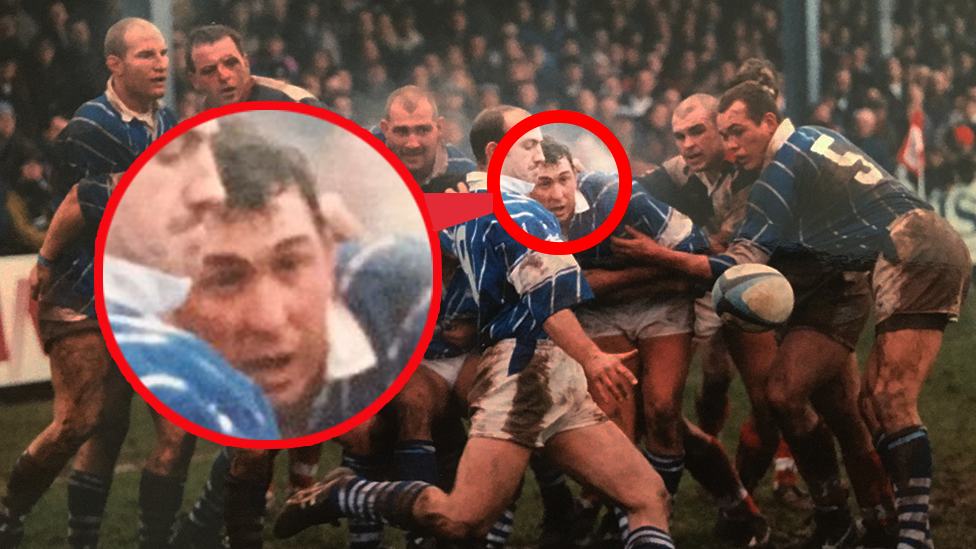
Antony was a forward for Caerphilly in the late 90s and early 00s
The 681 in the name refers to the chemical number for dopamine, the chemical lacking in those living with Parkinson's.
The team's purpose is twofold, with exercise recommended for those living with the condition but also to create a forum where players can discuss and support others in a similar situation.
Next week, they will participate in a tournament in Cardiff for teams representing those living with Parkinson's.
Intense observation
Antony and other members of Phoenix 681 FC hope the team and the tournament can help raise awareness of Parkinson's and encourage more funding and research to help others who will receive the same diagnosis.
He is currently part of a medicinal trial travelling regularly to Nottingham for week-long sessions under intense observation. With Parkinson's a progressive disease, he hopes attempts to raise awareness and find new treatments will be successful.
"I try and stop myself thinking about the future. To be honest, I don't think anything will help me before I pop out of stage door left."
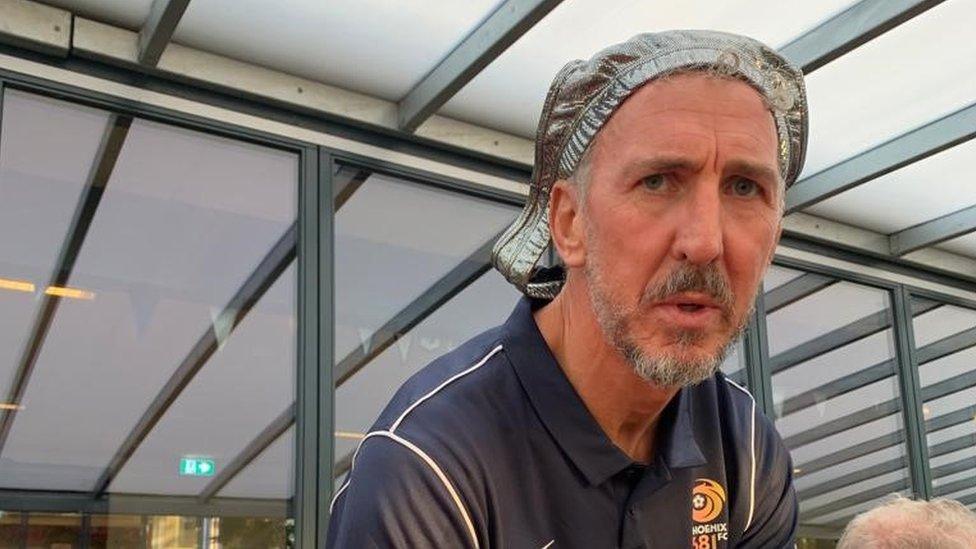
Antony says Parkinson's is dealt in the same way as it was in the 1950s
"If I can do something in terms of testing treatments which may help others in future, that what keeps me going, to help try and find a cure in future."
The Welsh government said: "Next month we will publish a quality statement for neurological conditions which sets out the outcomes and standards we expect health boards to achieve in delivering those services.
"Last month we published a new rehabilitation framework which sets out how health boards can meet the increasing demand for rehabilitation, reablement and recovery services.
"In addition we fund Health and Care Research Wales, who offer grants for medical research in Wales and has also supported clinical trials for Parkinson's."
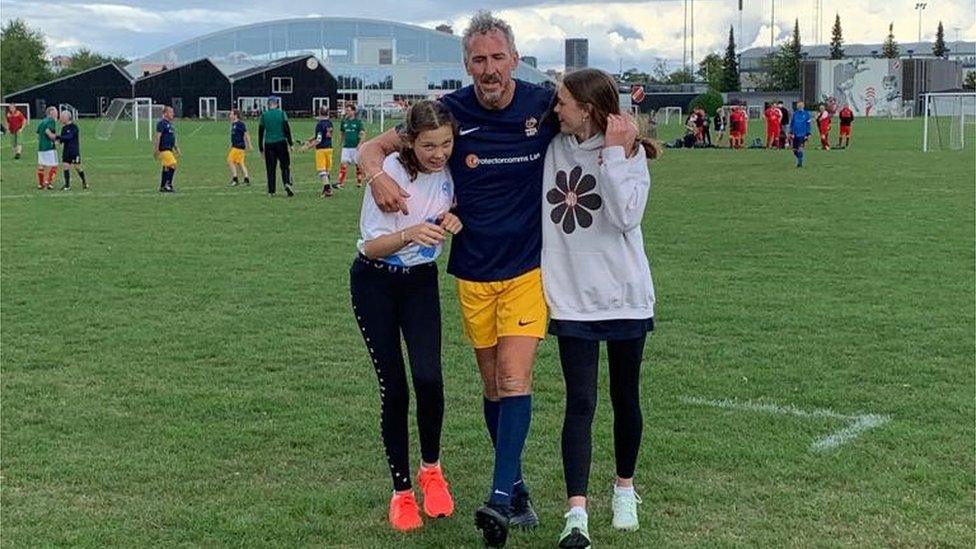
Antony - pictured here with his daughters - used to weigh 18 stone (114kg) but is now 13 stone (82kg) due to the illness
Related topics
- Published4 October 2022

- Published24 August 2021
